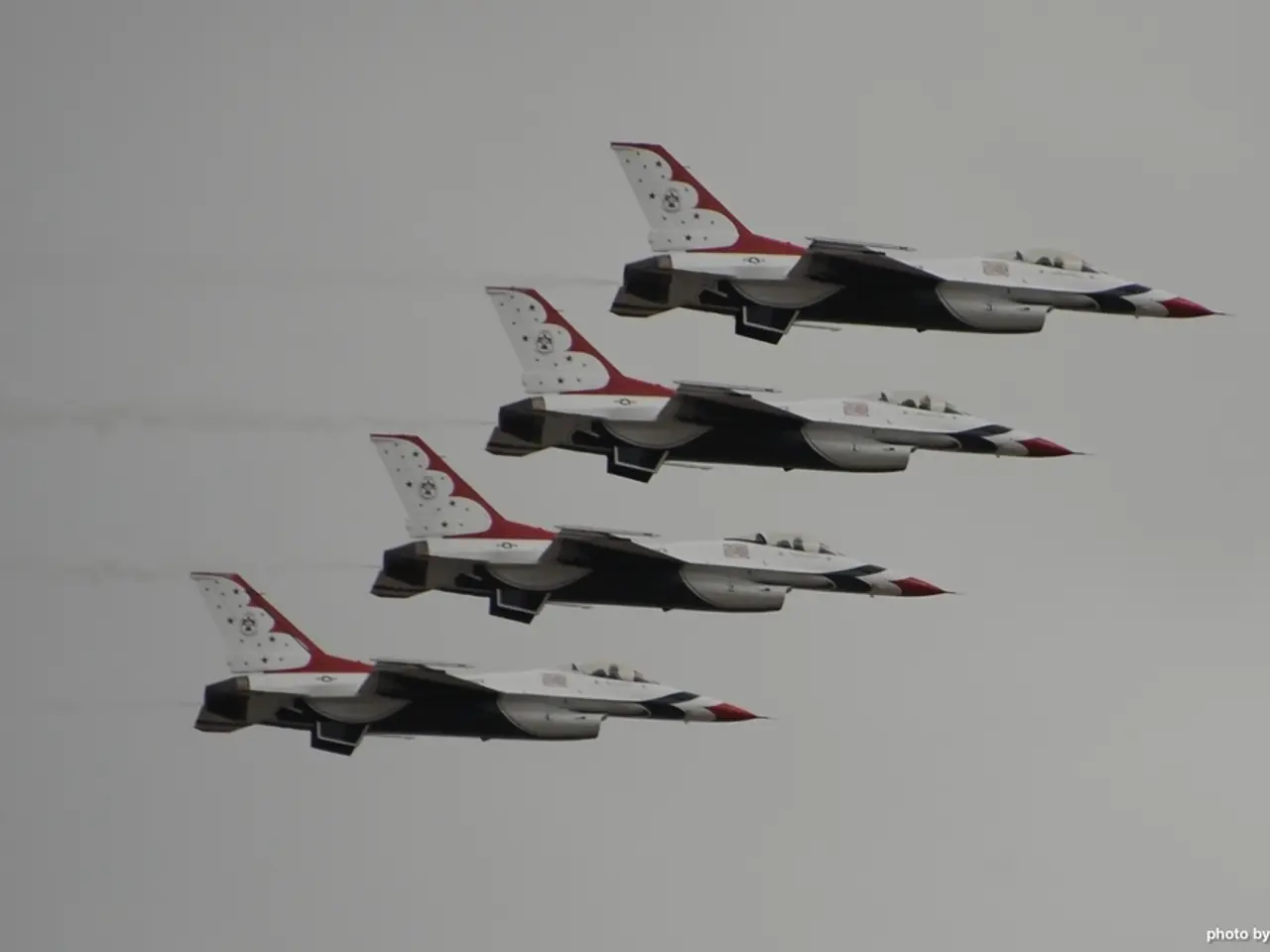Russia's Aggressive Airspace Violations Condemned by Estonia and Allies as Irresponsible
In a series of recent events, NATO member countries have raised concerns over alleged Russian 'destabilizing activity' in Poland, Romania, and Estonia. This marks the second time in under two weeks that a NATO member has invoked Article 4 consultations.
Ukrainian President Volodymyr Zelensky accused Russia of deliberately expanding its activities, while Estonia immediately called for urgent talks with NATO allies following an airspace violation. Last week, Poland invoked Article 4 after it shot down what it said were Russian drones on September 9.
The latest incident occurred on September 12, when three Russian MiG-31 fighters entered Estonian airspace over the Gulf of Finland without permission. At the time, the Russian jets did not have two-way radio communication with Estonian air traffic control, prompting the deployment of rapid reaction units supported by NATO allies including Finland, Sweden, Latvia, and Lithuania to intercept the aircraft.
Italy, which assumed command of the NATO Baltic Air Policing mission - Operation Baltic Eagle III - on August 1, scrambled Italian F-35 fighters to intercept the Russian jets and warn them off. The Russian MiG-31 fighters remained in Estonian airspace for approximately 12 minutes before leaving.
This provocative behaviour has become more frequent in recent months, according to Estonia. An earlier incident involving a Russian MI-8 helicopter violating Estonia's airspace near the island of Vaindloo occurred earlier this month. Romania also complained of a similar incursion days later.
In response to these incidents, European Commission chief Ursula von der Leyen presented a 19th package of sanctions targeting Moscow over the Ukraine war. Russia's defense ministry claims the MiG-31 fighters were on a scheduled flight from Karelia to an airfield in Kaliningrad.
Russia's charge d'affaires in Estonia was summoned to the foreign ministry to receive a formal complaint. The military alliance has scheduled talks to take place 'at the start of next week'.
These developments underscore the ongoing tensions between NATO and Russia, and the importance of maintaining a strong collective defence in the region.
Read also:
- United States tariffs pose a threat to India, necessitating the recruitment of adept negotiators or strategists, similar to those who had influenced Trump's decisions.
- Weekly happenings in the German Federal Parliament (Bundestag)
- Southwest region's most popular posts, accompanied by an inquiry:
- Discussion between Putin and Trump in Alaska could potentially overshadow Ukraine's concerns








